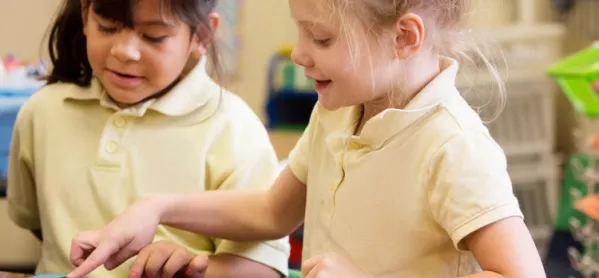It’s a tried and tested method for counting, and now research has found that using fingers can help young children with their maths.
A new study suggests that playing finger games - such as holding up a certain number of fingers - alongside number games such as dominoes boosts youngsters’ results in counting and simple arithmetic.
Researchers said the findings could be useful for teachers in developing children’s understanding of numbers.
The study, involving 137 children aged six and seven, saw pupils divided into five groups.
Each group was then given a different set of activities to do in 30-minute sessions twice a week for the next four weeks. One group was given finger training exercises, the other played number games.
Two other groups did both finger training and number exercises and the fifth was a control group that was given its usual maths lesson.
Making it count
The finger training games included numbering fingers from one to five then matching them with a finger on the other hand and tracing coloured lines with a particular finger, while the number games included snakes and ladders, dominoes and playing with dice.
Researchers gave the pupils several counting and arithmetic tests before and after the activities and found that the two groups which did both types of games (finger and number) did around twice as well in tests after the experiment as the other groups.
Overall, these groups saw their results - in basic number skills including adding and subtracting - go up by around 20 points, while the other three groups combined saw results go up by around nine points.
“This study provides evidence that fingers provide children with a ‘bridge’ between different representations of numbers, which can be verbal, written or symbolic,” Tim Jay, professor of the psychology of education at Sheffield Hallam University and co-author of the study, said.
“Combined finger training and number games could be a useful tool for teachers to support children’s understanding of numbers,”
Want to keep up with the latest education news and opinion? Follow Tes on Twitter and like Tes on Facebook.




